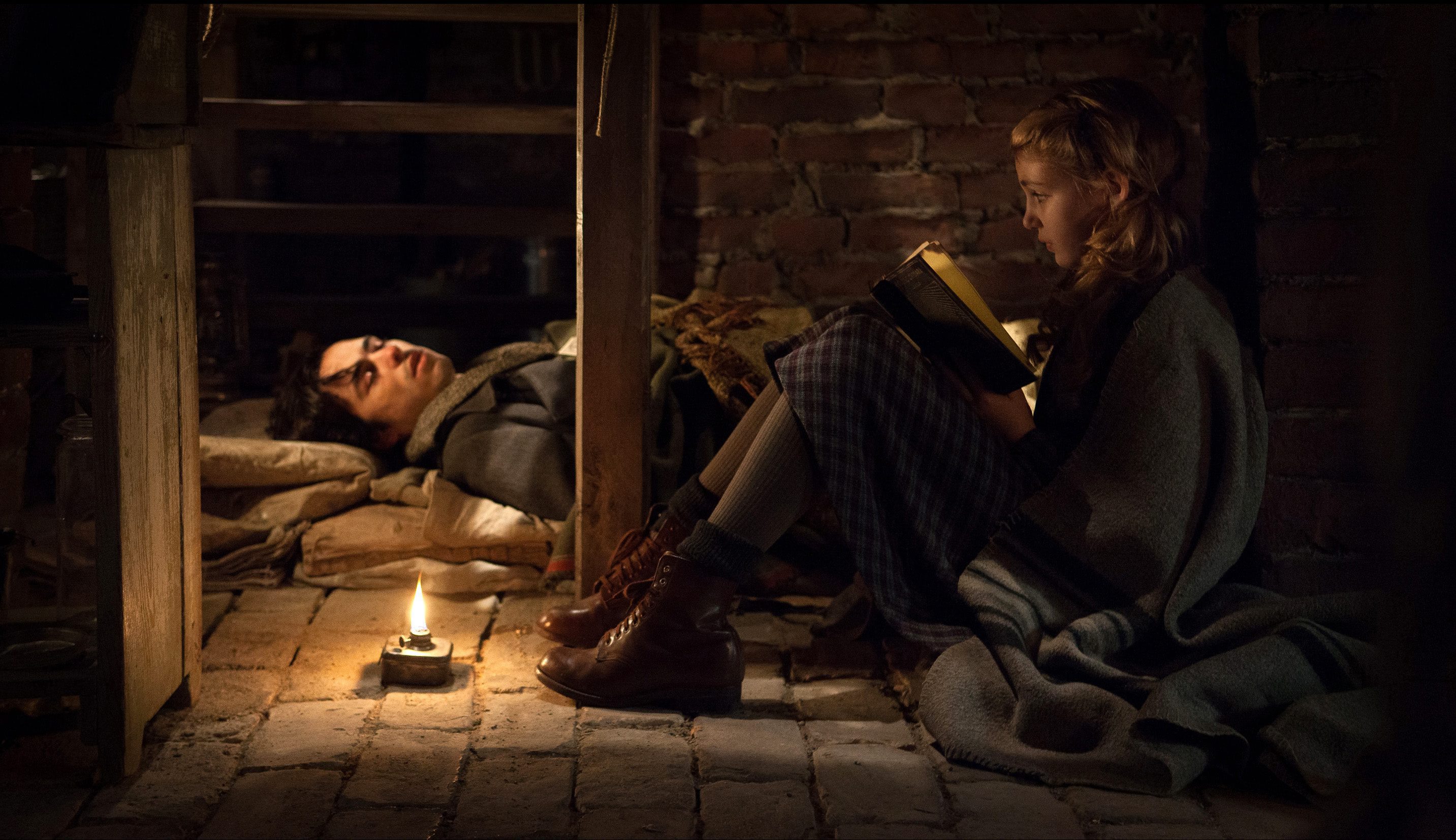When watching The Book Thief, I was more often than not reminded of Pinocchio. Not because they are both beloved stories written with children in mind, but because they have a lead searching to become a real person and the feeling of being maneuvered toward what feelings I should be having. Even though its heart is in the right place (because of a low hanging fruit story about the Holocaust), The Book Thief stays around too long and places the least interesting character at its center. If this is based on a true story, I’m glad the story exists in book form; it is disserviced by its big screen adaptation however.
Narrated by Death, The Book Thief tells the story of Liesel (Sophie Nelisse) and her life in World War II era Germany. The girl is given away by her mother (who doesn’t know what else to do) to Hans (Geoffrey Rush) and Rosa (Emily Watson), two non-supporters of Hitler’s regime. Liesel then begins her new life: she starts school, befriends a boy named Rudy (Nico Liersch), and learns how to read. Reading becomes an obsession for Liesel, even going so far as to steal banned books from book burnings and other people’s homes. Meanwhile, the German purge of Jews is taking force. One day a boy named Max (Ben Schnetzer) shows up at Hans’s door, where Hans places him in the basement and hides him from the Nazis. Liesel takes interest in Max, who encourages her to use words she’s learned to describe her days so he can picture it. However, threats continue to grow as the war gets closer to home.
The Book Thief makes the sin of making characters do stupid things in hopes to make the audience cry, laugh, cheer, etc. During a bombing, with NO explanation, Max just leaves the house and dances around outside; you’re supposed to feel his elation for leaving the basement, but you mostly laugh at how stupid the decision is. Rosa updates Liesel about Max’s condition in the middle of school to show how good of an actor Emily Watson is, but not for any good reason that couldn’t wait until Liesel got home. These decisions add up over the course of the film until eventually any quality moment (like when Liesel describes the day to Max) is undercut with skepticism and searches for logic flaws.
Also working against The Book Thief is the meandering nature of the story. The director thinks that time is enough of a throughput for The Book Thief, but the fascinating side characters need more of a central theme to appear. The toils of war would have been a good one: an escalation of personal sacrifice that would make the character evolution more believable. It would also nicely tie in each character to Liesel’s struggles. However, the story can’t seem to find a direction to go down and mostly throws everything from the book on the screen to see what sticks. The book’s choice of narration also makes the story run way too long, almost to the point of ruining any sense of payoff in the third act. A more focused narrative would do wonders toward making The Book Thief’s storyline more compelling, but as is it comes off to herky-jerky to the audience.
It’s sad that a child actor has to take most of the blame for The Book Thief, but Sophie Nelisse falls into the child actor role of cute but not interesting. She falls between the stoic/emotional line a lot lessening the impact of the many chances she has to win over the audience. The supporting cast fares MUCH better. Geoffrey Rush and Emily Watson give dimension to what appear to be dimensionless characters: Watson especially does wonders with a one-note role. Nico Liersch is really good as Liesel’s best friend Rudy. He finds the right note between understanding beyond his years and confusion at the world around him. Ben Schnetzer gets the most satisfying emotions out of the audience as Max; his scenes with Liesel crackle with simplicity and profundity simultaneously.
The Book Thief could have been a torrential tribulation study, but is instead a loquacious, pedantic lament of what could have been. The book is beloved, but the movie can be maddening. One last word of advice; if your setting is Germany in the 30’s, don’t make everyone speak English with German accents and a few German words. It makes NO sense.

